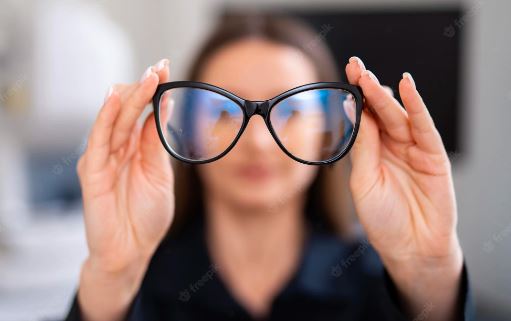Lasik eye surgery is one of the most prevalent eye treatments today. It provides you with numerous benefits, including improved self-confidence, better life, and so on. This life-changing treatment can help restore your vision and eliminate the need for corrective lenses such as eyeglasses or contact lenses.
The best thing about Lasik is that the procedure is less time-consuming which makes it not only effective but also quite convenient. You should be able to see clearly within a day or two after the procedure. However, the exact amount of time it takes may depend on the individual and the level of precautions you follow post-surgery.
Yes, after Lasik surgery, you will still need to protect your eyes. And the easiest way to do this is to wear sunglasses after LASIK eye surgery.
You won’t have to keep them on for the rest of your life, but following the treatment, you will require them to keep your eyes protected from harmful sun rays.
Why Should You Wear Sunglasses After The Procedure?
Following your LASIK surgery, you will need to keep your eyes covered and in complete darkness for the remainder of the day. It is because the flap that was formed by the laser incision needs some time to heal. Your eyes must not be exposed to any strong lights at this point. Any prolonged exposure to strong lighting, such as sun rays, can cause significant damage to the incision.
Wearing sunglasses will prevent light from penetrating your eyes. In addition to this, however, they help prevent foreign objects from entering the eyes. Wearing sunglasses will also eliminate the irritants and allergens from entering your eyes. Sunglasses will help you avoid wiping your eyes or putting unnecessary pressure on them.
Moreover, the covering is absolutely necessary in order to ensure that the LASIK flap can heal properly. And sunglasses help cover your eyes properly.
How Long Should I Wear Sunglasses After The Lasik Eye Surgery?
After the LASIK surgery, you’ll be able to resume back to your regular activities in only a few days. However, your surgeon will ask you to wear sunglasses for at least a week after the procedure has been completed.
Even while the flap may seem and feel as though it has completely healed, it is possible that it will continue to feel some irritation and discomfort. Wearing sunglasses will mitigate the harm posed by these outside elements.
After the first week following the treatment, it is not absolutely necessary for you to continue wearing those sunglasses; however, you must discuss this with your surgeon before you stop wearing sunglasses. Visiting a laser eye centre in Delhi post-Lasik for regular checkups is also important.
Wearing sunglasses will help you avoid the glare of different kinds of bright lights and protect your newly treated eyes.
Wearing sunglasses may become less important once your eyes have fully recovered from the surgery. However, it is still an excellent idea to make it a lifelong habit always to wear them.
It is because the frontal tissues of the eye can be damaged by the sun, which might contribute to the development of a pinguecula or pterygium.
In addition to hastening the process of cataract formation, prolonged exposure to UV light has been linked to an increased risk of macular degeneration. In addition, UV exposure can also lead to cancer of the skin around one’s eyes.
What Kind Of Sunglasses does One Shall Wear?
After LASIK, you must be very careful about everything that you do, including the kind of sunglasses you wear. Of course, you don’t need to invest in very expensive eyewear after your LASIK eye surgery. However, your sunglasses should be one that is easy on the eyes. The one that makes a shield thick enough over your eyes to keep contaminants out.
In addition, your sunglasses should also offer protection against ultraviolet light (UV) to stop harmful rays from reaching your eyes.
Polarized lenses are great when it comes to wearing high-quality sunglasses after surgery. These glasses prevent glare from horizontal rays, which helps lessen eye strain and tiredness.
Vertical rays will be able to pass through the lenses, which will not only improve your vision but also eliminate the glare caused by the other rays.
Points To Consider Before Buying Sunglasses
Finding a style you enjoy will increase the likelihood that you will actually wear your new sunglasses, but it’s not the only thing to think about. Here are some of the important considerations when buying sunglasses:
- Check that the lenses clearly declare that they block out 100 percent of UVA and UVB rays.
- A good fit between the frame and your face is essential, and an optician can help you do that.
- The lenses’ breadth should be about the same as your face’s, the bridge should rest lightly over your nose, and the arms (temples) should rest snugly behind your ears without pressing.
- It’s also important to check that the lenses offer complete protection from UV rays coming from all directions.
- More often than not, optical stores and doctors provide high-quality sunglasses and employ trained opticians who can help ensure a proper fit.
- Nonetheless, you can buy a high-quality pair for a reasonable price.
- Last but not least, you should select something that works for you financially and satisfies the specifications.

